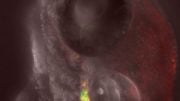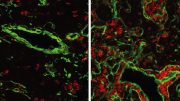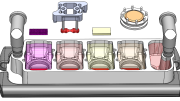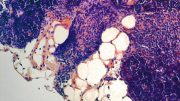Scientists from the MRC Center for Regenerative Medicine at the University of Edinburgh have grown a fully functional organ from scratch in a living animal by transplanting cells that were originally created in a laboratory. The research could aid in the future development of ‘lab-grown’ replacement organs.
Scientists have grown a fully functional organ from transplanted laboratory-created cells in a living animal for the first time.
The researchers have created a thymus – an organ next to the heart that produces immune cells known as T cells that are vital for guarding against disease. They hope that, with further research, the discovery could lead to new treatments for people with a weakened immune system.
The team from the MRC Center for Regenerative Medicine at the University of Edinburgh took cells called fibroblasts from a mouse embryo. They turned the fibroblasts into a completely different type of cell called thymus cells, using a technique called reprogramming.
The reprogrammed cells changed shape to look like thymus cells and were also capable of supporting development of T cells in the lab – a specialized function that only thymus cells can perform.
When the researchers mixed reprogrammed cells with other key thymus cell types and transplanted them into a mouse, the cells formed a replacement organ. The new organ had the same structure, complexity, and function as a healthy adult thymus.
It is the first time that scientists have made an entire living organ from cells that were created outside of the body by reprogramming.
Doctors have already shown that patients with thymus disorders can be treated with infusions of extra immune cells or transplantation of a thymus organ soon after birth. The problem is that both are limited by a lack of donors and problems matching tissue to the recipient.
With further refinement, the researchers hope that their lab-grown cells could form the basis of a thymus transplant treatment for people with a weakened immune system.
The technique may also offer a way of making patient-matched T cells in the laboratory that could be used in cell therapies.
Such treatments could benefit bone marrow transplant patients, by helping speed up the rate at which they rebuild their immune system after transplant.
The discovery offers hope to babies born with genetic conditions that prevent the thymus from developing properly. Older people could also be helped as the thymus is the first organ to deteriorate with age.
The study is published today in the journal Nature Cell Biology.
Reference: “An organized and functional thymus generated from FOXN1-reprogrammed fibroblasts” by Nicholas Bredenkamp, Svetlana Ulyanchenko, Kathy Emma O’Neill, Nancy Ruth Manley, Harsh Jayesh Vaidya and Catherine Clare Blackburn, 24 August 2014, Nature Cell Biology.
DOI: 10.1038/ncb3023
Image: University of Edinburgh









Be the first to comment on "Biologists Grow a Living Organ from Lab-Created Cells"